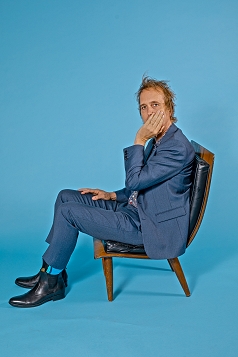Outside Left
Beauty Walks on a Razor’s Edge: GOR at Koko
Green on Red, during their Eighties glory days were said to be part of a movement known a the Paisley Underground. Bands which saile under that flag of convenience tended to be le by sissies or nerds who’d gotten all excited abou The Byrds
Green on Red bore much the same relationship to this scene that William Burroughs did to the Beat Generation. With them, but not of them. Laughing at them, not with them. They knew one another, but there the connection ended.
There was nothing second division or socially acceptable about GoR’s rich stew of sophistication, urban alienation, cultural ambition, or punk rock exuberance. They fitted, more tidily, into that troublesome wave of acts which included The Gun Club, Panther Burns, and Alex Chilton. These people tended to be hugely aware avant gardeists high on, amongst other things, the redemptive powers of rock music as high art.
There ended up being two versions of Green on Red. The original was Chris Cacavas, Chuck Prophet, Jack Waterson, Dan Stuart, and Alex MacNicol. I saw them live at The Buttery in Dublin’s Trinity College; I don’t know if I’ve ever seen anything better. Their 1985 album, Gas Food Lodging, is just one of the dazzling artifacts they created; it conjures up the American landscape of Steinbeck, Charles Willeford, or Horace McCoy. I like its cover artwork which calls to mind Philip K Dick’s The Man in the High Castle.
That band came apart at the seams; sometimes the center cannot hold. A while later, Green on Red Mark 2 (Stuart and Prophet backed up by good session players) showed up in Europe, issued a batch of impressive albums, gigged their way up the greasy pole of the live circuit, and became more popular (in Europe) than the original GoR had ever been. I got to know Chuck and Dan somewhere in the middle of that phase in their lives, when they became the Phil and Don of Bukowski Rock. I also met and talked with Chris Cacavas when he passed through London playing with Russ Tolman.
All three men were significantly poignant examples of gifted musicians stranded in an Eighties world gone wrong. The leader of their particular pack, Dylan, was temporarily knocked out and loaded. U2 were writing the book on a whole new set of (tediously mind-numbing) rock’n’roll ethics and mores. Like old gunfighters in Sam Peckinpah movies, the likes of Green on Red were the last of their type, riding off into a post-nuclear sunset. To use an old Irish phrase, their sort will never come again. Just like the sort that I am myself, and the sort who used to throng their long-ago sweaty smoky gigs, will never come again.
And here they come again. That’s bands for you.
Original drummer MacNicol died last year. Death, especially premature death, concentrates the mind and the psyche. The rest of the original lineup got together for a gig in the States and came to London this January to do a one-off show at the Astoria.
I got offered a blowjob as I made to leave the venue by the side exit down a slimy back alley. ‘No thanks, man, I had one earlier.’ I responded, pretty sharpish. One is always being offered blowjobs in the vicinity of the Astoria. It goes with the territory.
It’d been an emotional night of tunes suffused by a narcotic beauty. The dueling between guitarist Prophet and Cacavas on keyboards – two real master musicians – still seemed to be as fundamentally original a sound as anybody important has ever made. Vocalist Dan Stuart, a patrician writerly figure fronting a strident swaggering swamp of sound, was man enough to wear his heart on his sleeve and to be moved by the whole experience. I was touched by the occasion myself.
Bands reforming is tricky business. The Velvet Underground took a hammer to their pristine reputation when they did a Nineties tour. My own favorite adolescent band recently reunited dreadfully as a bunch of besuited, smiling, and middle-aged bores. The Stones’ restoration started shakily but they ultimately found their feet.
You can always come back but you can’t comeback all the way.
Green on Red have just finished a short tour of Europe involving gigs at festivals and clubs.
They sailed into London to participate in an itinerant festival – Don’t Look Back – which gets classic bands to perform live an entire album deemed by armchair pundits to be their finest. Iggy and the Stooges played Fun House as part of last year’s festivities. This year Green on Red did Gas Food Lodging.
I’m totally opposed to the idea of bands playing a so-called “classic album” live as if rock music has become a preserved-in-aspic art form whose best days are behind it. The concept of the “classic album” is a crock of shit too. You either like a band and you buy every last thing they do and you like the most of it or else you’re just a male bozo who collects stuff and reads monthly rock magazines. The “in-concert album” phenomenon started when that abominable Republican walrus Brian Wilson started touring his allegedly “legendary” Smile masterpiece. Why won’t somebody tie Brian Wilson up in a sack with a few large chunks of concrete inside, and throw the sack into the nearest river?
I don’t much like Koko, where GoR were performing, either. It used to be the faintly ridiculous Camden Palace and now it’s been gussied up to look like the world’s biggest bordello.
Back in the Astoria in January the crowd was mainly fortyish gentlemen in black suits, some of them chomping on cigars while others sported Stetsons. Koko and the Don’t Look Back concept brought in a different element. There were a lot more women, many of them glamorous. Denim was much in evidence.
It looks like Green on Red is going to be around a bit from now on. This is good. Gas Food Lodging doesn’t exist as some slice of cultural nostalgia to be conjured up like a magic trick for self-styled cognoscenti. It’s an album available in the shops now, still as exciting as it was in 1985.
The band’s set finished, like their album did, with the old civil rights hymn, We Shall Overcome. As they played it, a filmic backdrop featured examples of American torture and abuse in Iraq. The song turned into a long, percussive, sonic throb. Its great that this band is around again, helping keep beauty on a razor’s edge.
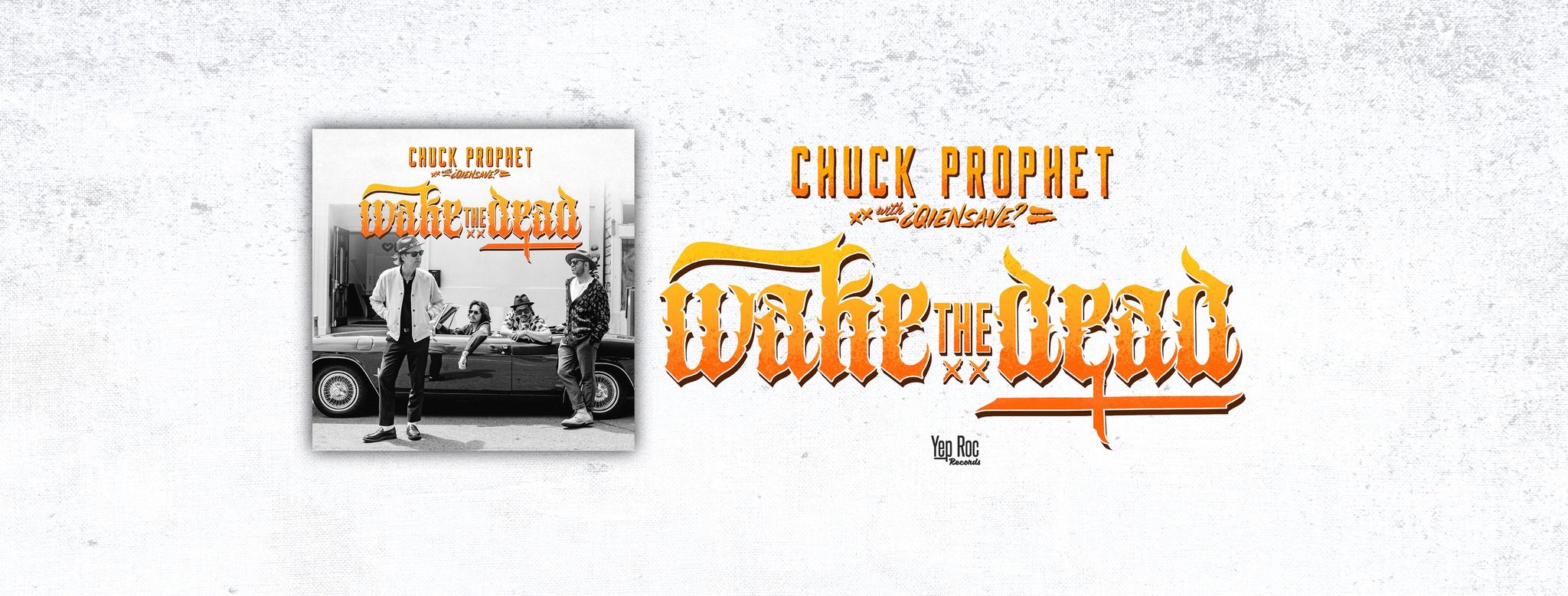




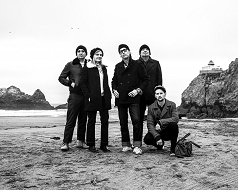
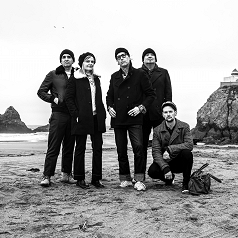
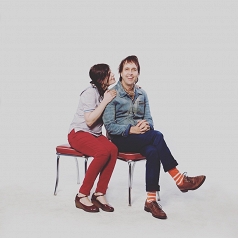
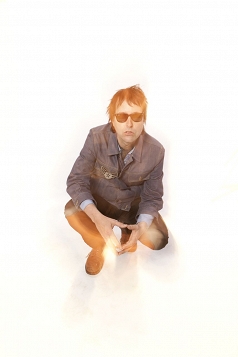
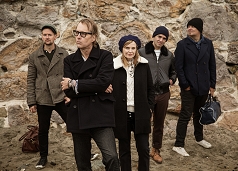
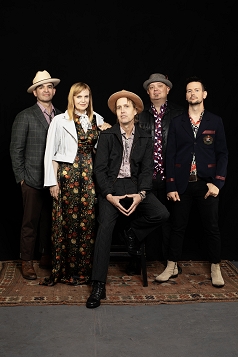
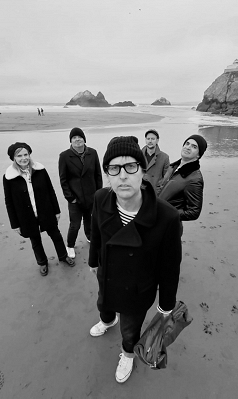
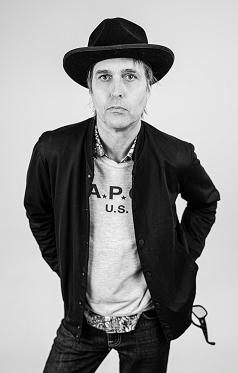
3_238_159auto_s_c1.jpeg)
